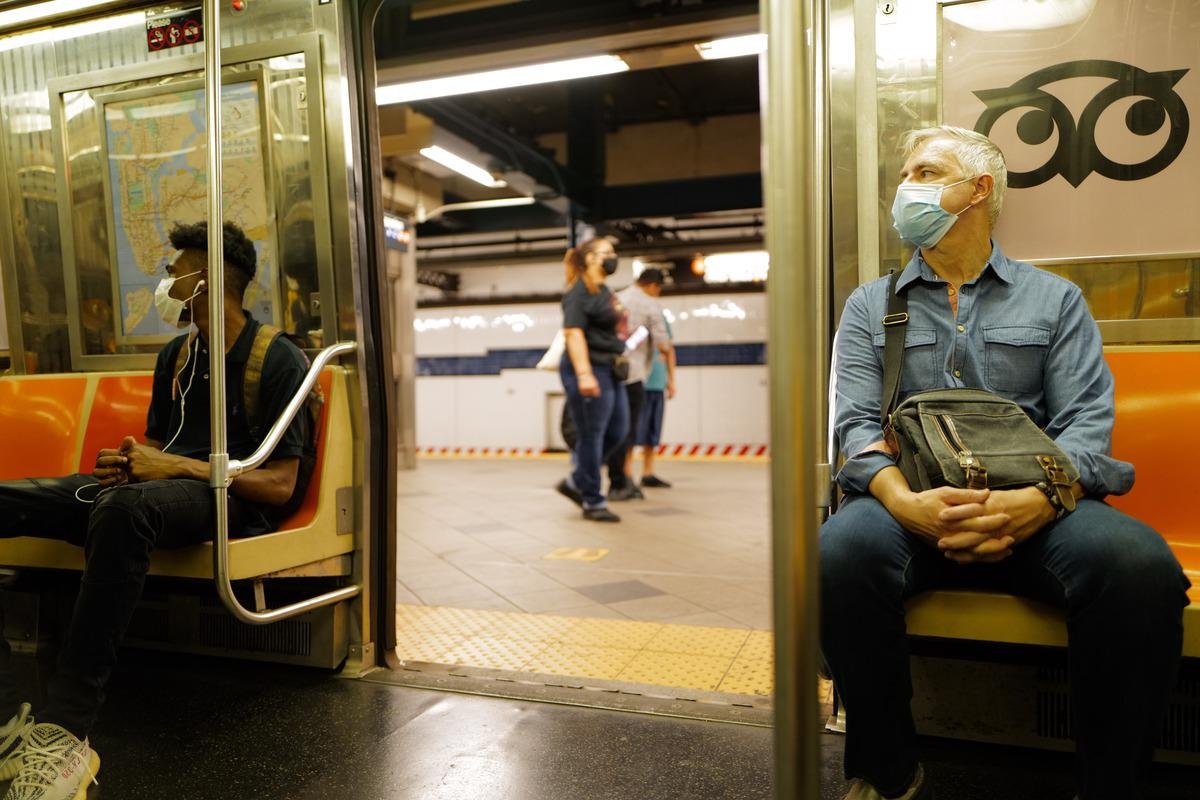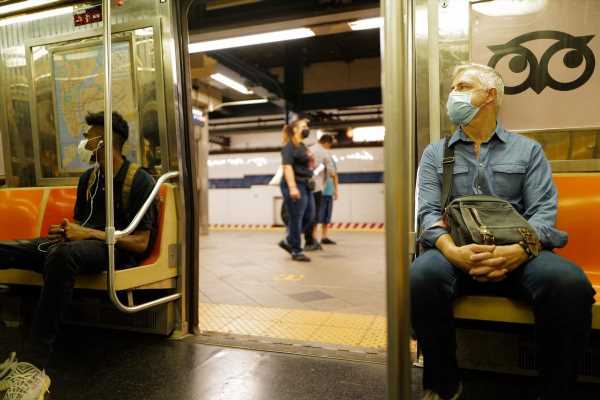In a recent article published in the Nature Medicine journal, researchers explored the inequities in understanding and addressing the neurological complications of coronavirus disease 2019 (COVID-19) among marginalized communities in the United States (US).
 Study: Post-acute neurological consequences of COVID-19: an unequal burden. Image Credit: CHOONGKY/Shutterstock
Study: Post-acute neurological consequences of COVID-19: an unequal burden. Image Credit: CHOONGKY/Shutterstock
COVID-19 and its neurological consequences particularly burden marginalized communities, and so can only be effectively treated by advancing health equity.”
Background
Ever since the COVID-19 pandemic started, there have been more than 328 million severe acute respiratory syndrome coronavirus 2 (SARS-CoV-2) cases and over 5.54 million COVID-associated deaths worldwide.
COVID-19 and its neurological complications particularly burden communities confined to the lower or peripheral edge of the society due to the disparities in healthcare systems.
For instance, in the US, the Black, Latino, and Indigenous communities were two to three times more at risk for SARS-CoV-2 infection, COVID-19-associated hospitalizations, and deaths than the rest of the population.
Thus, advancement in health equity is necessary for the effective treatment of post-acute neurological consequences of COVID-19.
Neurological outcomes
Nearly 35-85% of patients experience COVID-19-associated neurological problems in the acute and subacute phases of the disease. The acute neurological consequences include delirium, cerebrovascular disease, encephalopathy, neuropathy, and seizures.
Further, certain complications such as abnormal movements, syncope, autonomic dysfunction, and psychomotor agitation have less frequently been reported post-COVID. Some small retrospective studies have documented post-COVID acute inflammatory demyelinating polyneuropathy, acute demyelinating encephalomyelitis, acute necrotizing encephalopathy; however, sufficient information regarding their prevalence is not available.
An online survey with a large number of American and European respondents reported that a substantial proportion of the study population experienced COVID-19 endorsed neurological problems, including memory disturbances, post-exertional malaise, and insomnia for about three to six months post-diagnosis.
Almost 30% of those between 30-59 years had cognitive deficits that led to lower productivity at work. While some of the study population reported a gradual improvement in the neurological symptoms, others experienced a disturbing pattern of relapse and remittance triggered by factors like mental exertion, physical activity, and menstruation.
Non-hospitalized SARS-CoV-2 patients experienced post-COVID neurological symptoms for about three to nine months from their diagnosed date, many aged 65 years or younger.
Lack of representative studies
Most COVID-19 research works include SARS-CoV-2 patients based on a positive reverse transcription-polymerase chain reaction (RT-PCR) result rather than those diagnosed based on COVID-19 symptoms or antibody responses.
The majority of the studies collected data from electronic health records, online surveys, and these studies mainly exist in the English language. Studies employing in-person clinical evaluation, and beyond the geographical regions of Europe and the US are rare. Even within American and European studies, the marginalized communities are underrepresented despite their higher burden of COVID-19.
A retrospective study of individuals hospitalized with COVID-19 and stroke from the US and Canada demonstrated poor access of the Black patients for stroke treatments resulting in two times increased risk of mortality among black patients than other races.
Another American retrospective study among hospitalized COVID-19 patients indicated that treatment at non-academic hospitals was associated with two times higher risk of 30-day mortality and poor functional outcomes, despite the severity or comorbidity status.
According to a survey of COVID-19-infected patients discharged from 38 Michigan hospitals, nearly 60% of Blacks and 5% of Latinos received no follow-up care within 60 days of discharge. Most of them lacked health insurance and had moderate to severe financial effects.
Another study from San Francisco and Denver reported that Latinos were discharged after treatment of acute-COVID-19 without follow-up treatments since they were not medically insured.
Community-centered approach
The recognition and addressing of underrepresented communities with the highest burden of COVID-19 are essential for the efficient application of a multi-level public health policy to mitigate the COVID-19 pandemic. Further, the neurology community should implement effective measures to dismantle structural racism, eventually lowering the debilitating neurological burdens of COVID-19.
Enhancing the access of people of color and economically backward populations to trusted messengers who can educate them about the importance of neurological health and effective public health interventions can significantly decrease the risk of COVID-19.
The screening facilities in the safety-net hospitals, resource-limited clinical settings, and community-based health centers should be well equipped to offer an expansive screening for neurological problems. Moreover, the implementation of telehealth-assisted neurological services and the practice of referral to other medical institutions with higher-level care when required are also necessary for these facilities.
Increasing access to neurology clinicians along with high-quality diagnostic modalities like electromyography, brain imaging, and sleep studies will be impactful in controlling COVID-19-associated neurological sequelae.
Moreover, access to diagnostics coupled with therapeutics like vaccines, thrombolysis, monoclonal antibodies, rehabilitation services, novel oral antiviral drugs molnupiravir, nirmatrelvir, and ritonavir will be life-changing in COVID-19 severity as well as post-COVID neurological manifestations. Marginalized communities face a complex web of structural barriers in access to vaccination, given that vaccines are significant in preventing SARS-CoV-2 infection and its associated long-term neurological consequences.
Universal healthcare
In most circumstances, uninsured individuals will not get appropriate healthcare services. Thus, the World Health Organization (WHO) suggested the implementation of universal healthcare to provide access to healthcare services to all people without financial concerns and should be encouraged by the neurology community since it presents an opportunity to learn more about various neurological disorders.
The nations where universal healthcare has not been implemented have an immediate need for medical care in COVID-19 patients, especially among economically backward citizens. Even though the government had allocated funds for COVID-19 testing and vaccination in the US, the long-term post-COVID follow-up treatments are not covered.
Conclusions
Many of thethe Black, Latino, and Indigenous communities in the US are employed as essential workers and experienced low income, lack of paid leave, limited access to personal protective equipment, resulting in disproportionate impact from COVID-19 and associated neurological sequelae in this population.
Patient-centered studies analyzing acute and post-acute neurological manifestations of COVID-19 require the dismantling of structural racism suffered by marginalized communities, which was prevalent even before the COVID-19 pandemic. The achievement of health justice in and beyond neurology increases access to standard neurological evaluations, therapeutic management, and research opportunities, and also helps deliver neurological care beyond this pandemic.
- LaShyra T. Nolen, Shibani S. Mukerji & Nicte I. Mejia. (2022). Post-acute neurological consequences of COVID-19: an unequal burden. Nature Medicine. doi: https://doi.org/10.1038/s41591-021-01647-5 https://www.nature.com/articles/s41591-021-01647-5
Posted in: Medical Science News | Medical Research News | Disease/Infection News
Tags: Antibodies, Antibody, Brain, Cerebrovascular Disease, Coronavirus, Coronavirus Disease COVID-19, covid-19, Delirium, Diagnostic, Diagnostics, Drugs, Encephalomyelitis, Encephalopathy, Health Insurance, Healthcare, Imaging, Insomnia, Language, Medicine, Menstruation, Mortality, Neurology, Neuropathy, Pandemic, Personal Protective Equipment, Physical Activity, Polymerase, Polymerase Chain Reaction, Public Health, Research, Respiratory, Ritonavir, SARS, SARS-CoV-2, Severe Acute Respiratory, Severe Acute Respiratory Syndrome, Sleep, Stroke, Syndrome, Therapeutics, Transcription

Written by
Shanet Susan Alex
Shanet Susan Alex, a medical writer, based in Kerala, India, is a Doctor of Pharmacy graduate from Kerala University of Health Sciences. Her academic background is in clinical pharmacy and research, and she is passionate about medical writing. Shanet has published papers in the International Journal of Medical Science and Current Research (IJMSCR), the International Journal of Pharmacy (IJP), and the International Journal of Medical Science and Applied Research (IJMSAR). Apart from work, she enjoys listening to music and watching movies.
Source: Read Full Article
